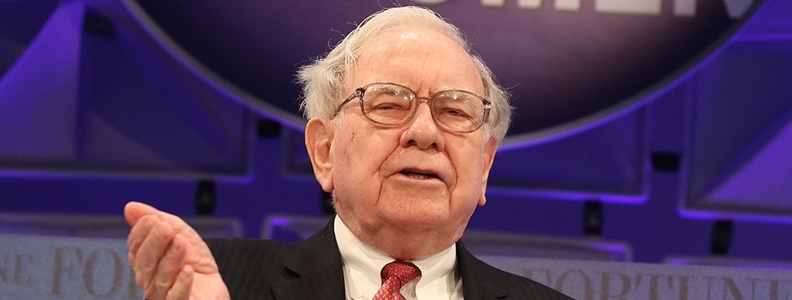
An advisory board can be a powerful tool. But imagine what you’d achieve if you had the five best business minds ready at your disposal.
From Buffett to Branson, below we explore how the very best business people operate and what they could bring to your boardroom table:
Board Member #1 – Warren Buffett
“It takes 20 years to build a reputation and 5 minutes to ruin it. If you think about that, you’ll do things differently.”
There’s perhaps no better businessman than Warren Buffett. At 86, he has made US $2 million for every day of his life. He is the chairman, CEO and largest shareholder of Berkshire Hathaway, a leading investment conglomerate and is consistently ranked among the world’s wealthiest people.
Buffett attributes his success to safe investments, remaining humble and constantly learning on the job. And throughout his career he has always questioned assumptions and sought ways to improve models and processes.
Despite his immense wealth, Buffett, the “Oracle of Omaha” still lives frugally in the Omaha house that he bought for US $31,500 in 1958. He often plays bridge with Bill Gates and has pledged to give 99% of his wealth to philanthropic causes.
Board Member #2 – Richard Branson, Virgin Group
“A business has to be involving, it has to be fun, and it has to exercise your creative instincts.”
Sir Richard Branson is your hardworking, swashbuckling British entrepreneur. His Virgin Group comprises of over 400 different companies in a number of different fields, including airlines, music and mobile, among others. His net worth is estimated to be US $5.1 billion.
He’s known for testing the limits, both in the office and out. He’s made numerous world record attempts, such as the fastest Atlantic Ocean crossing and circumnavigating the globe in a hot air balloon.
His business ventures are no less impressive. Virgin Galactic offers ordinary citizens (with $250,000) the chance to fly into space, and this should launch within the next year. He’s also known for his tireless work for various philanthropic causes.
Board Member #3 – Steve Jobs, Apple
“We’re gambling on our vision, and we would rather do that than me ‘me too’ products. Let some other companies do that. For us, it’s always the next dream.”
Steve Jobs, co-creator of Apple and majority shareholder of Pixar, is recognised as a pioneer in the computer revolution in the 1970s and 1980s. Always seeking innovation, his drive for simplicity in design and user experience saw Apple products rise to the top of the technology food chain. At the time of his death in 2011, his net worth was estimated to be US $10.2 billion.
So much of the Apple brand comes down to the ‘cult’ of Steve Jobs. Every time there was a new Apple product to be released, he would hold the press conference-cum-product demonstration himself. Dressed in his iconic blue jeans, black skivvy and white joggers, he would effortlessly wow audiences of all kinds. If Steve was selling, we were buying. And in many cases, we’d be lining up outside his stores overnight just to get the chance to do so before everyone else.
Board Member #4 – Bill Gates, Microsoft
“Success is a lousy teacher.”
Bill Gates is the co-founder of Microsoft, the world’s largest PC software company. With an estimated net worth of US $90 billion, he’s often been the world’s richest person. Whenever Microsoft found a dominant position in the market, he would defend it and aim to build on that lead, always striving for new products and better systems.
Gates is also well known for his philanthropy. The Bill and Melinda Gates Foundation is the world’s wealthiest charity, valued at US $34.6 billion. Citing David Rockefeller as a major influence, Bill Gates established the Gates-Buffett Giving Pledge with Warren Buffett (and later signed by Facebook CEO Mark Zuckerberg) to donate at least half of their wealth to charity. However, Bill and Melinda have said publically that they plan to donate at least 95% of their wealth to charity.
Board Member #5 – Ingvar Kamprad, IKEA
“If there is such thing as good leadership, it is to give a good example. I have to do so for all the IKEA employees.”
With a net worth estimated to be US $41.8 billion, Ingvar Kamprad revolutionised the retail industry through mainly mail-order, flat-pack furniture.
IKEA’s success is partly due to its sleek, innovative designs at affordable prices, but can also be attributed to the IKEA catalogue. Kramprad saw the power of the catalogue early and sought to leverage its use. First published in 1951, the catalogue remains its main marketing tool. In fact, it’s the most published book worldwide and is printed in over 30 languages. To put that in perspective, there are two copies of the IKEA catalogue printed for every bible.
Your advisory board may not look quite like this one, but with a bit of effort, you can pool together everyone’s strengths and attack your next business problem with confidence.



